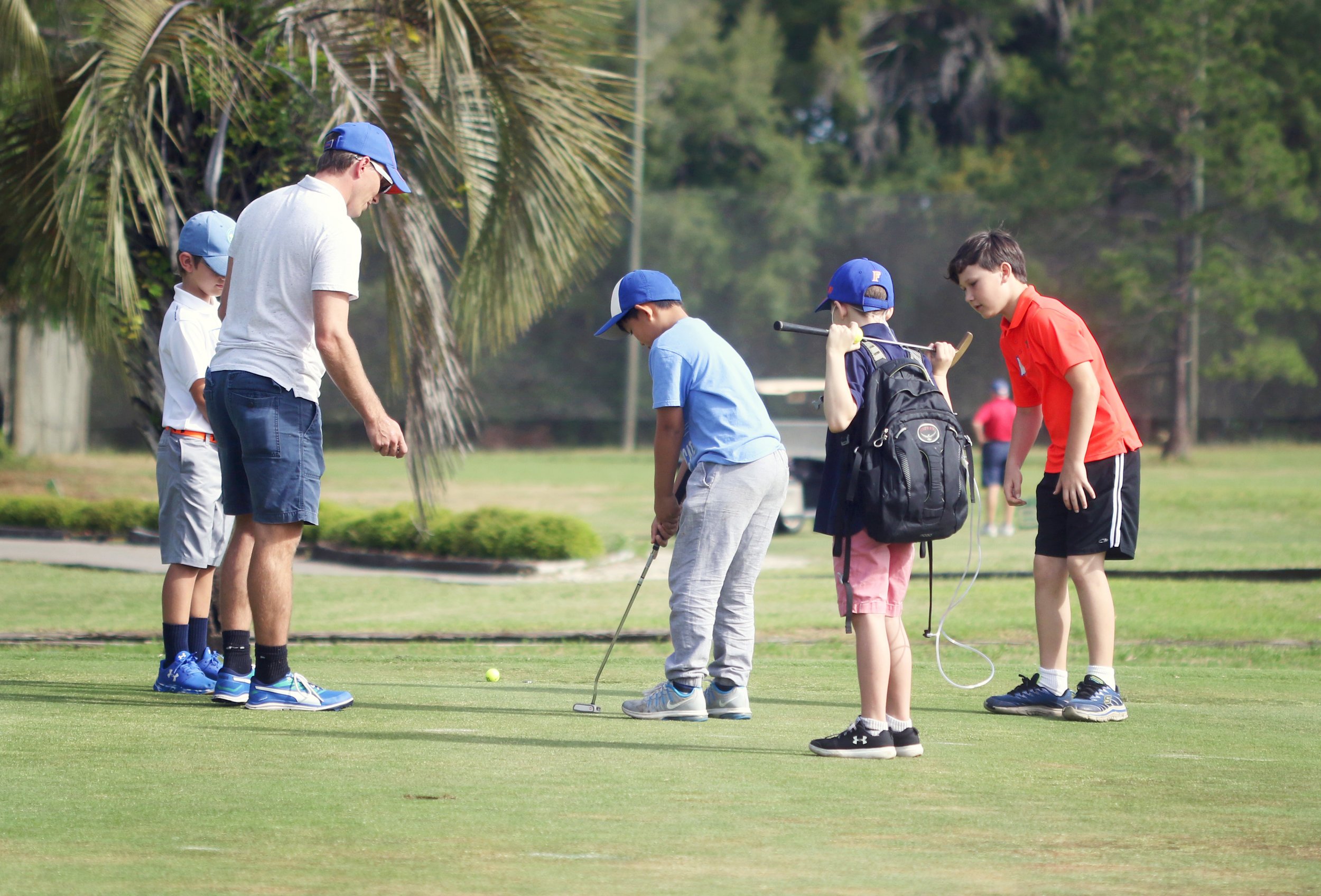Golf with Disabilities
Growing the game of golf and providing opportunity for all youth regardless of physical ability, socioeconomic status or ethnicity.
The Gator Junior Golf Association works with kids of all backgrounds and many have conditions that limit their physical abilities to play other sports. Our Shands Children’s Hospital golf program works with inpatient children, many of whom are terminally ill, that have severe diseases such as cancer. We bring specialized equipment, including plastic golf clubs and mini tennis balls, to allow these kids the opportunity to participate in a sport and feel like a normal kid. Many times, golf is the one sport our kids are able to participate in because of their disability. Our individual weekly classes sees kids with a myriad of disabilities, some are more apparent than others but golf is surprisingly attainable for so many disabilities and we continue to be inspired by what our kids are able to accomplish despite their circumstances. Approximately 15% of our enrollment has a disability.
There are many types of disabilities. Typically, they fall under one of these categories:
Physical or Mobility - a physical or motor disability in which is there is total or partial decrease in mobility in one or more members of the body. This could include paralysis, muscular dystrophy, cerebral palsy and amputation. Some of our kids have a hip condition or have a prosthetic leg. Our coaches work with their conditions, such as altering their swing to work around a lack of hip mobility, to help the individual overcome their limitations.
Hearing - loss or decrease of the auditory system which leads to difficulty with speech, language and learning. Some of our children have hearing implants, which we take steps to ensure the individual can hear the lesson as well as being mindful of limitations, such as rain, that could cause a problem for the hearing device.
Vision - loss or reduction of vision.
Intellectual - limitations to one’s cognitive abilities such as information processing, perception, memory, attention and problem-solving. A common example of this is ADD/ADHD.
Psychosocial - impairments in thinking, feeling, or relating to others. They can be intense and constant. A common example of this is autism.
Multiple disabilities - two or more types of disabilities are present. This is common where someone has both a physical and intellectual disability.
Our coaches are trained and have experience working with kids with various conditions. We strive for inclusivity in our program. This sometimes means changing the lesson plan to ensure all students can participate equally without singling anyone out. Some disabilities come without a label or go undiagnosed such as children with PTSD due to childhood trauma and abuse. Our coaches are trained to help recognize the visible warning signs of abuse. They also work to ensure our kids have a psychologically safe space to learn; we don’t tolerate bullying or negativity that can isolate or otherwise impair a child’s ability to learn and develop. Other disabilities do have a label and are diagnosed, but present different challenges for learning.
The following are some examples of children’s conditions that we’ve worked with in the past:
Autism. One of the most common conditions we work with of varying degrees of severity. A common challenge with autism in a group class setting is behavioral/social. Instructors work to pair kids in groups for a proper fit. If necessary, additional coaches assist with the small group to ensure everyone’s needs are met.
Mitochondrial disease. Individuals with this condition are often required to wear a backpack with oxygen tank inside. The condition causes very limited stamina which means sports that involve running are oftentimes not possible. Our instructors help ensure the backpack or other external attachment to a child’s body is fitted properly to work with a golf swing.
Down syndrome.
Deaf and hearing impaired
Cerebral Palsy
Prader-Willi syndrome
Limb amputees
Hypotonia
ADD/ADHD and others


